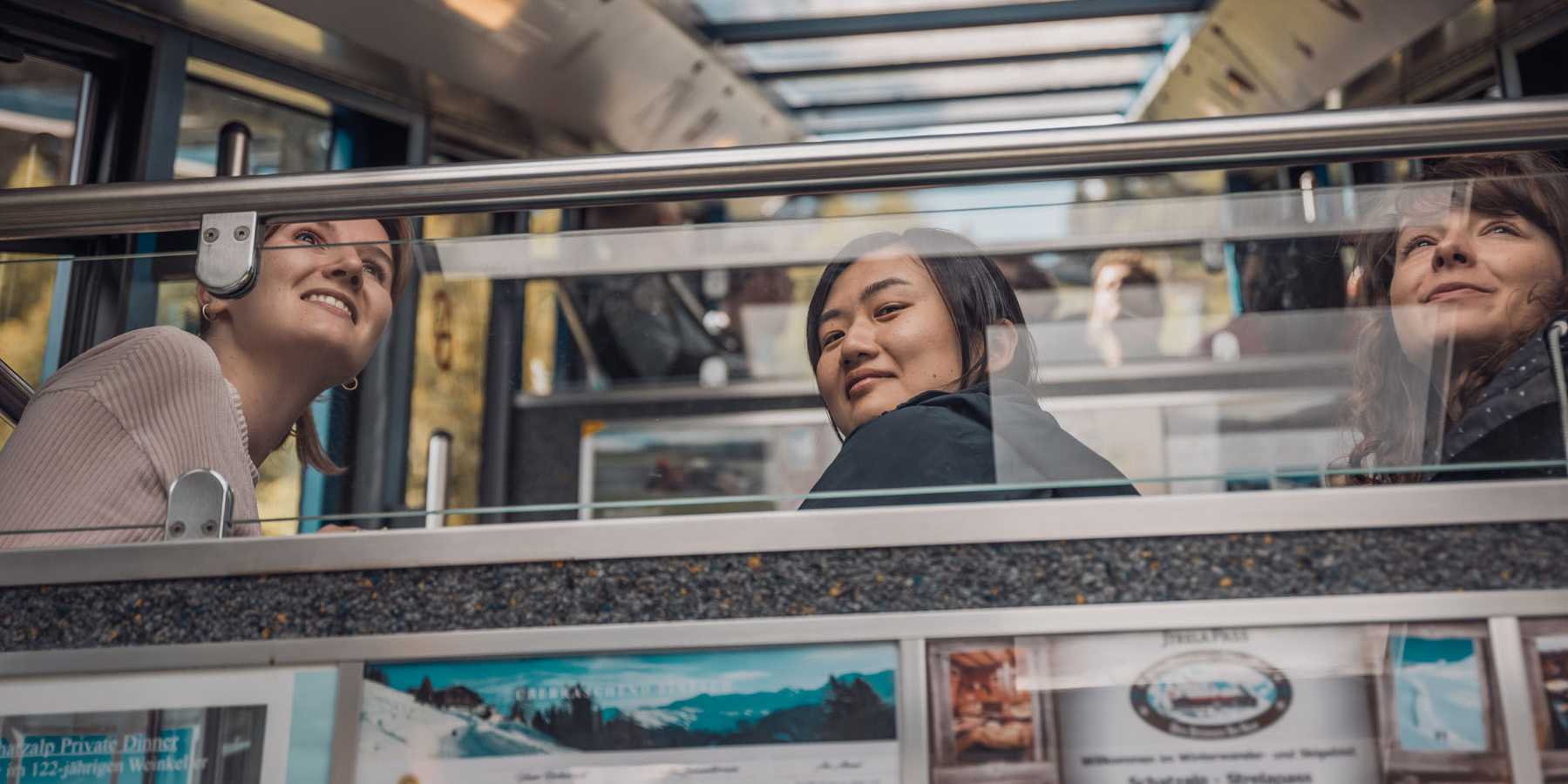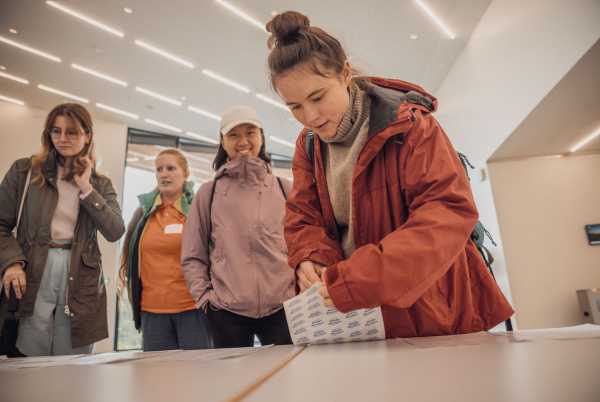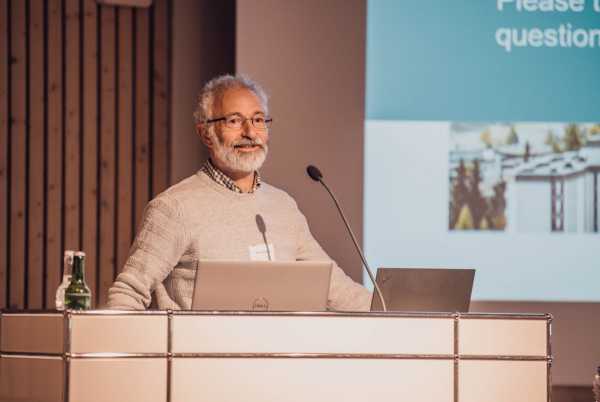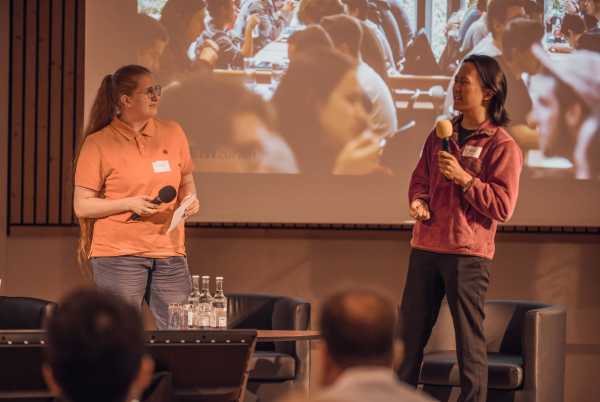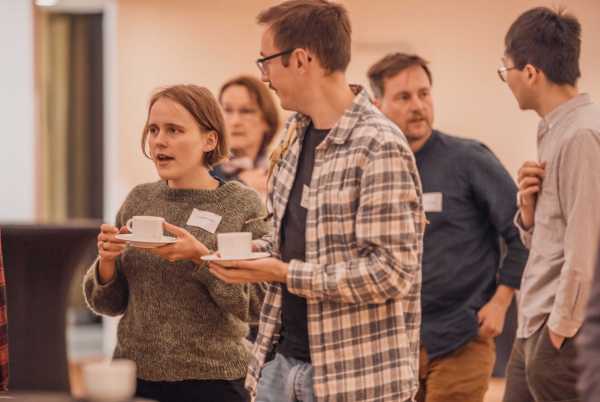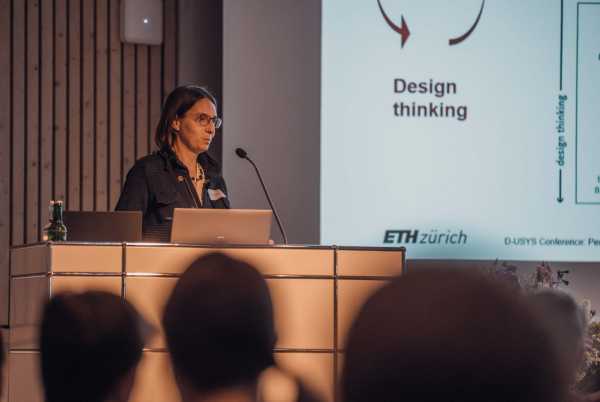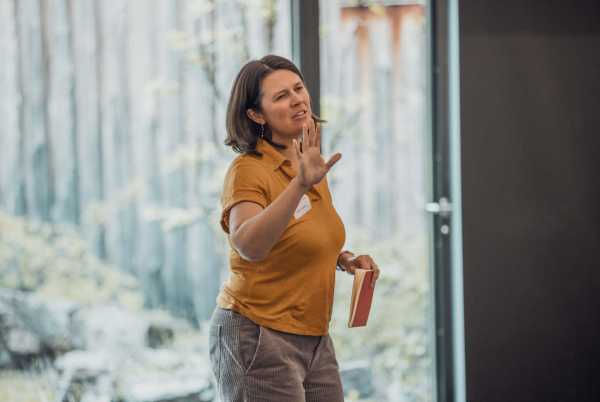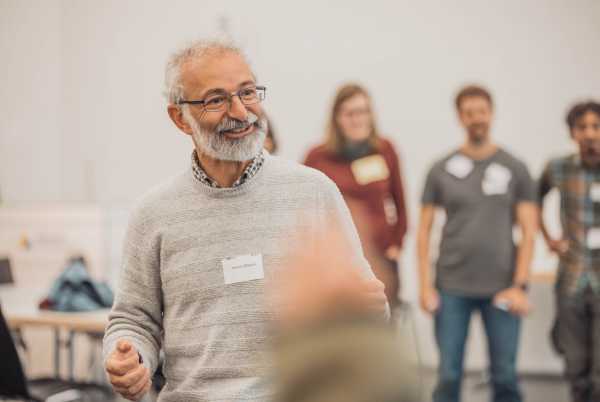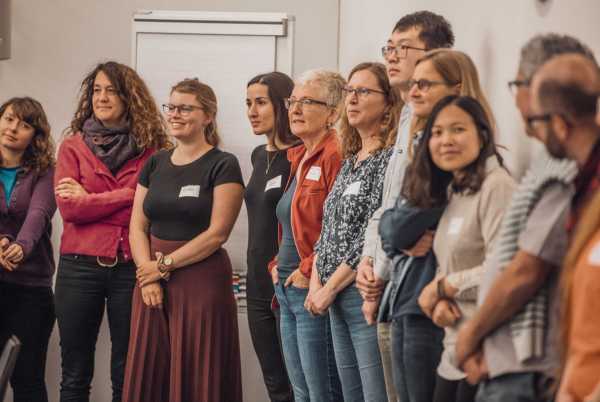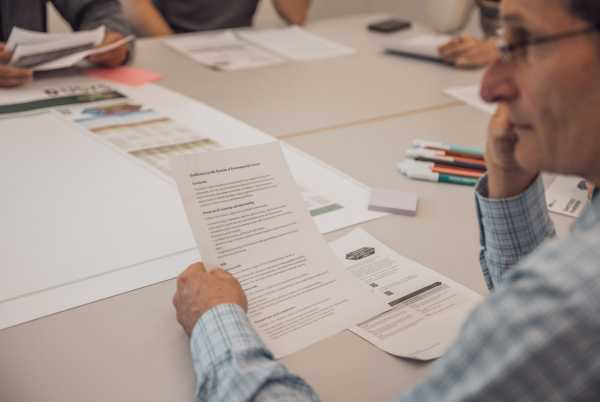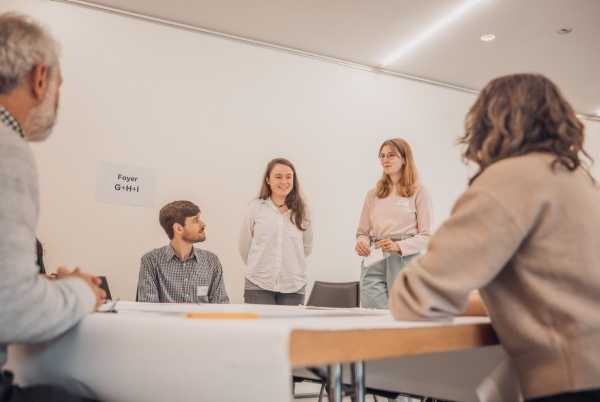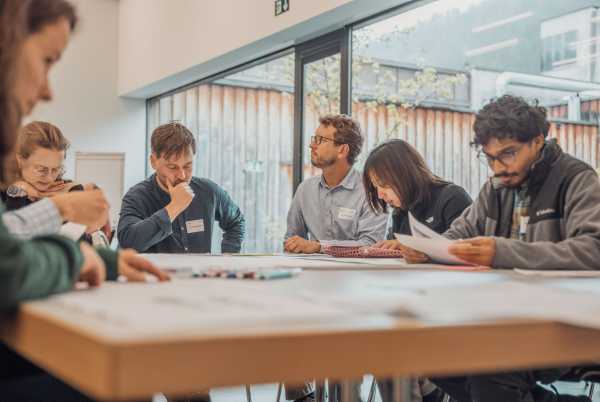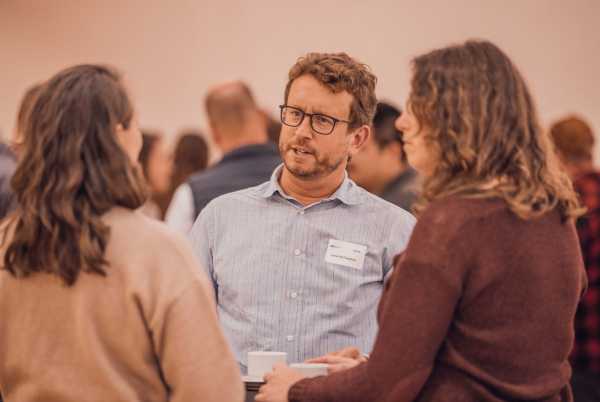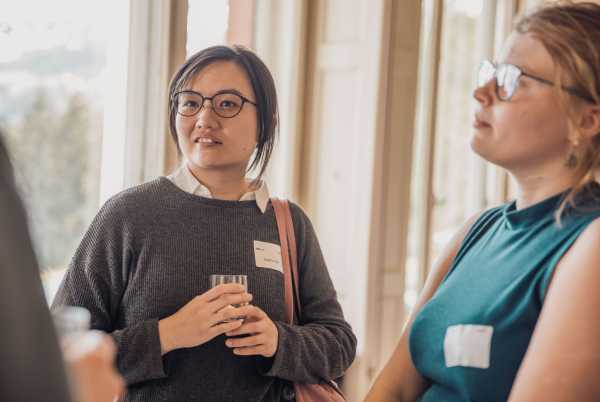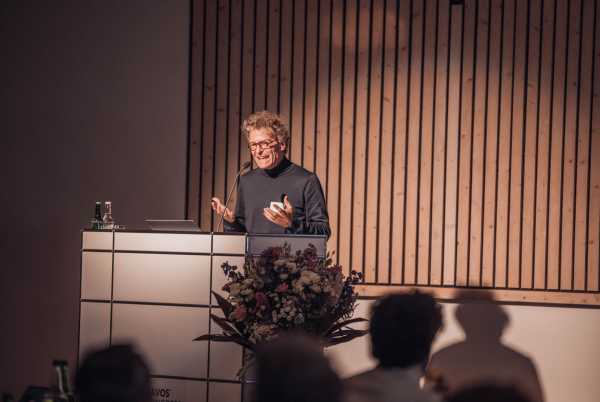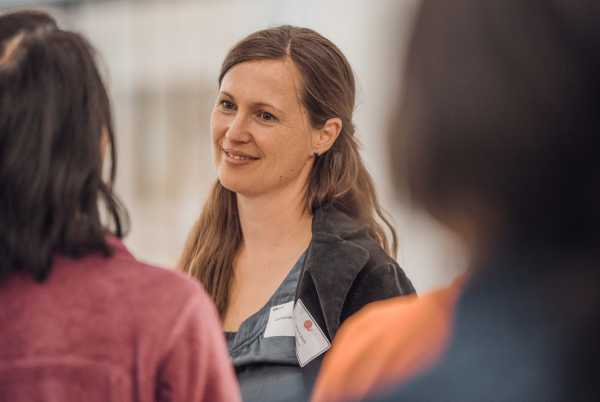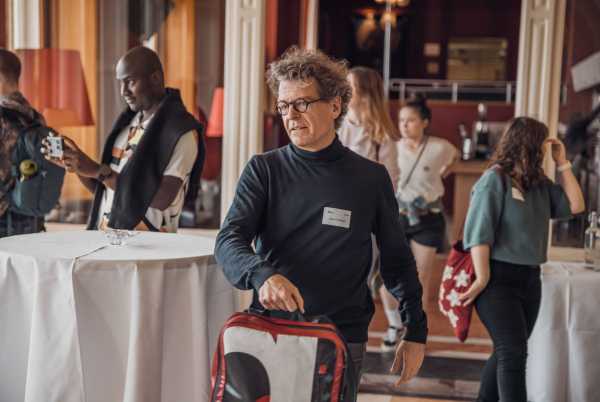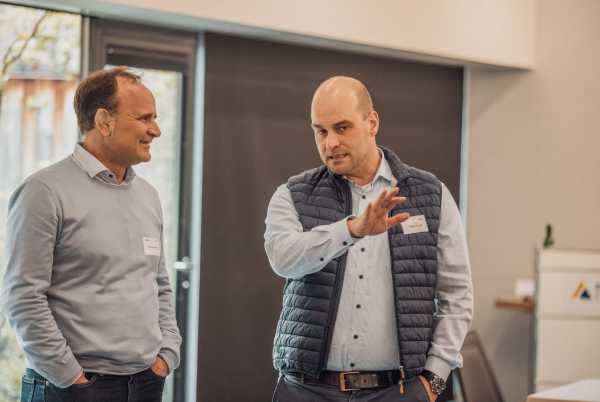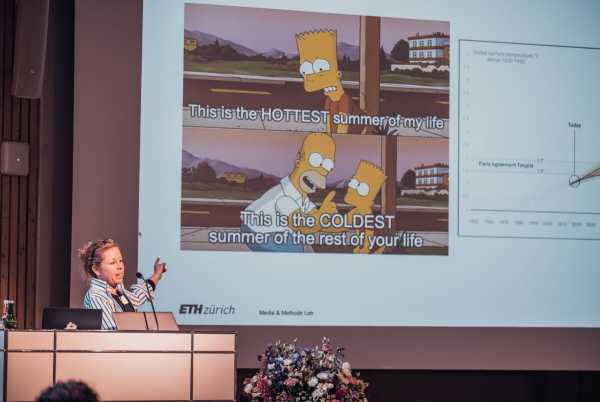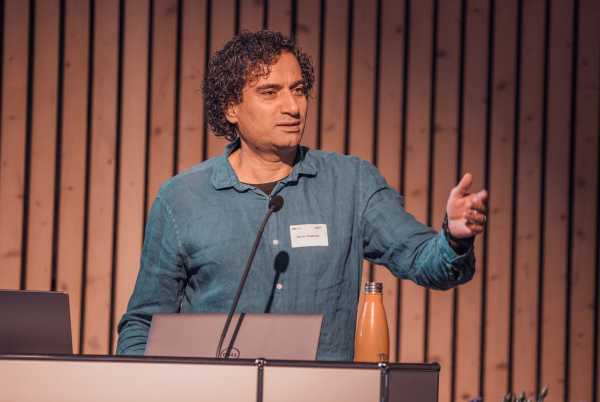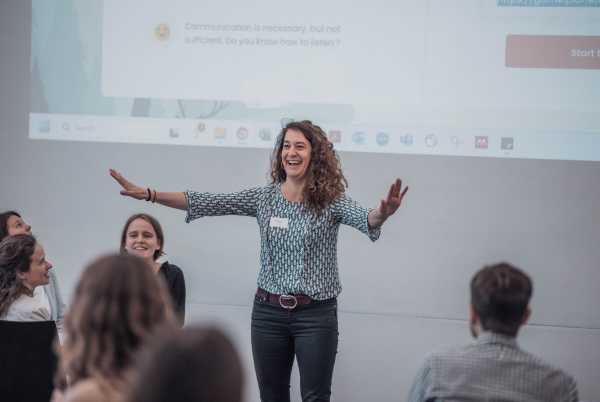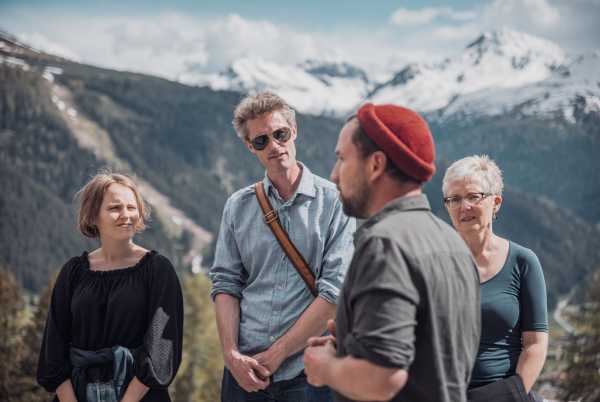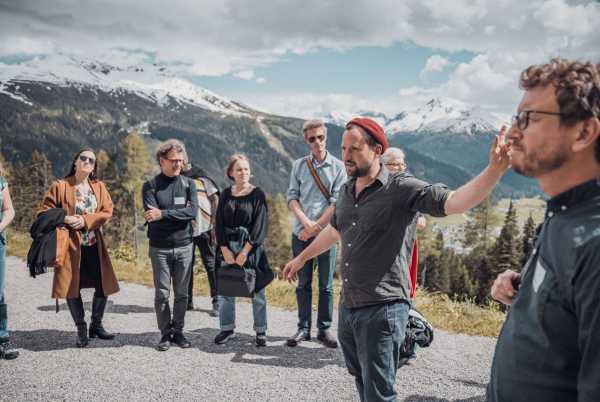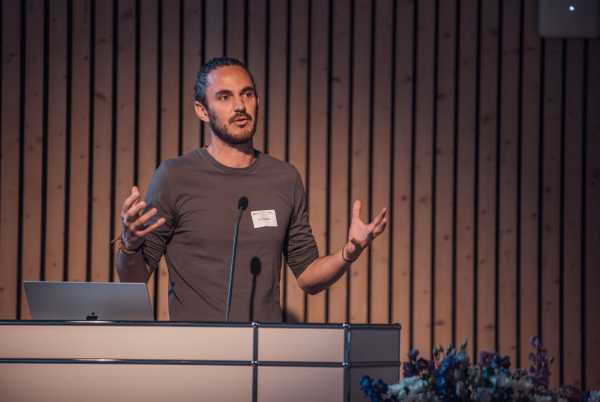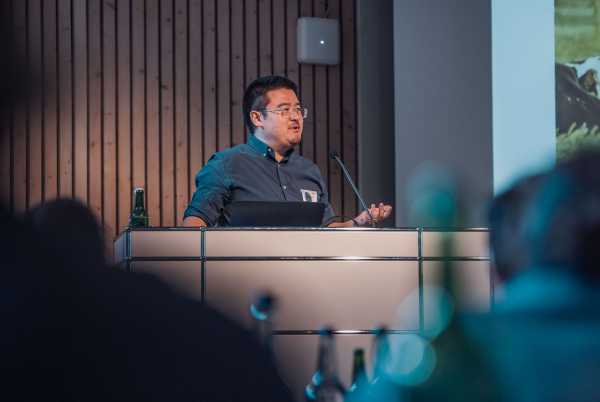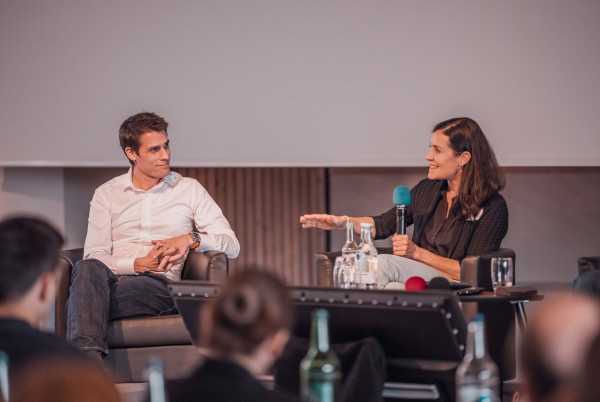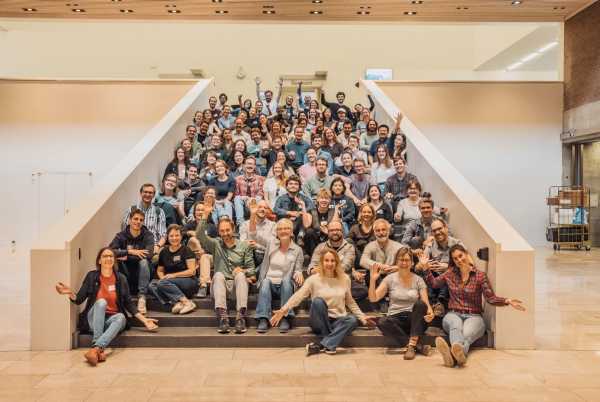Systems thinking is anchored in the recently adopted D-USYS strategy. However, it is "not a simple matter, especially in research", emphasised David Bresch, Professor for Weather and Climate Risks, in his presentation. In Davos, this was reflected in the subsequent discussion on how qualitative and quantitative approaches can be optimally combined. "It is really important to talk about this," confirmed Johanna Jacobi, Assistant Professor for Agroecological Transitions. In her perception, the view that social sciences are "the mud in the clear water of natural sciences" is still occasionally heard.
Communicate proactively
While the first day of the conference at the Davos Congress Centre was all about teaching, the focus on the second day was on science communication. Jeanine Reutemann, head of the ETH EduMedia team, and Samer Angelone from the Swiss Science Film Academy emphasised the importance of audiovisual communication for scientists in their presentations. "We must finally stop just reacting to external communication needs," explained Reutemann. "Our communication must clearly become more proactive." In different group work sessions, the two film professionals drew the participants out of their shells by presenting them with practical communication tasks.
Exchange among peers
In the afternoon, there was finally some time to mingle outside the conference. The leisure programme consisted of either a hike around Lake Davos, a guided tour of the Snow and Avalanche Research Centre (SLF) or a visit to the Botanical Garden "Alpinum" on the Schatzalp including a local gin tasting. Later in the evening, Tom Crowther and Jaboury Ghazoul proved their talent as quiz masters. Over vegan burgers and fries, they confronted the participants with a total of 41 questions, encompassing the categories "Literature" and "Famous scientists". The groups "Homeopathic Practitioners" and "Buzz Lightyear" came out on top.
Is there too much focus on climate change?
How systems thinking melds into research, showed Tom Crowther, Professor for Global Ecosystem Ecology, and Mutian Niu, Assistant Professor for Animal Nutrition, in their fascinating insights into their work on the third day of the conference. Last but not least, the "USYS debate" with the title "Is there too much focus on climate change in our research about transitioning towards sustainability?" concluded the programme. The panellists (Sebastian Dötterl, Leland Werden, Niki Gruber and Nina Buchmann, moderator: Tony Patt) initially struggled with this question. However, they all agreed that it takes more than just knowledge to bring about change in society. Tired, but inspired and satisfied, the participants made their way home.
